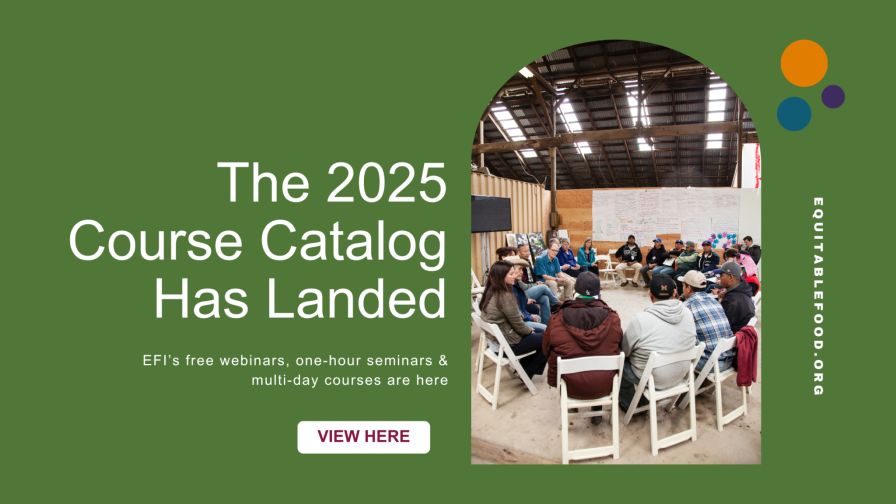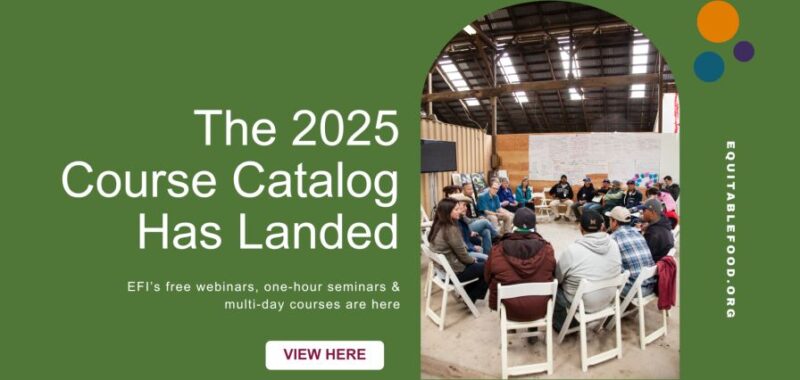
2025 EFI Online Educational and Training Course Curriculum | Equitable Food Initative
Equitable Food Initiative has announced the return and expansion of its educational course curriculum for 2025. Building on last year’s programming, EFI continues to support agricultural professionals with knowledge and tools that promote safer workplaces, enhanced collaboration, employee retention, and environmental stewardship.
Launched last year, EFI’s course curriculum was designed to address critical issues in the agricultural sector, including workplace inclusivity, effective communication, and sustainability. More than 500 people attended in 2024, with sessions such as the Fostering Respectful and Inclusive Workplaces seminar and the ECIP Introductory webinar, which drew more than 100 registrations. Online resources saw robust engagement, drawing thousands of workshop page visits and new users exploring EFI’s offerings.
This year, EFI is expanding its curriculum with new webinars, seminars, workshops, and courses tailored to the evolving needs of the industry. EFI Product Marketing Manager Madelyn Edlin says, “By equipping the industry with practical strategies to attract and retain skilled workers, align with the Ethical Charter on Responsible Labor Practices, and enhance sustainability efforts, we are helping to create a more resilient food supply chain.”
Among notable topic additions is Securing a Reliable Workforce: How to Attract and Retain Skilled Labor, a seminar focused on addressing labor shortages. Also added in 2025 is a hands-on workshop, Leading With Impact: Supervisor Training, to enhance leadership skills among agricultural supervisors. EFI has also introduced a free sustainability mini-series, underscoring its commitment to people-centric environmental responsibility and climate-forward farming practices.
Returning course such as Sustainability 101 and Facilitation 101 & 102 ensure participants can build on their knowledge while accessing fresh insights and tools to navigate emerging challenges. Participants will have opportunities to learn from industry experts, engage with peers, and explore practical solutions to issues like workforce retention and audit implementation.
“The agricultural industry continues to face big challenges, from labor shortages to the growing need for sustainability training and practices,” says Edlin. “We are committed to addressing these needs by equipping growers, farmworkers, and stakeholders with the knowledge, skills, and strategies they need to create a more equitable and efficient workplace.”
For more information and a complete list of available webinars, seminars, workshops, and courses, visit equitablefood.org/courses.

